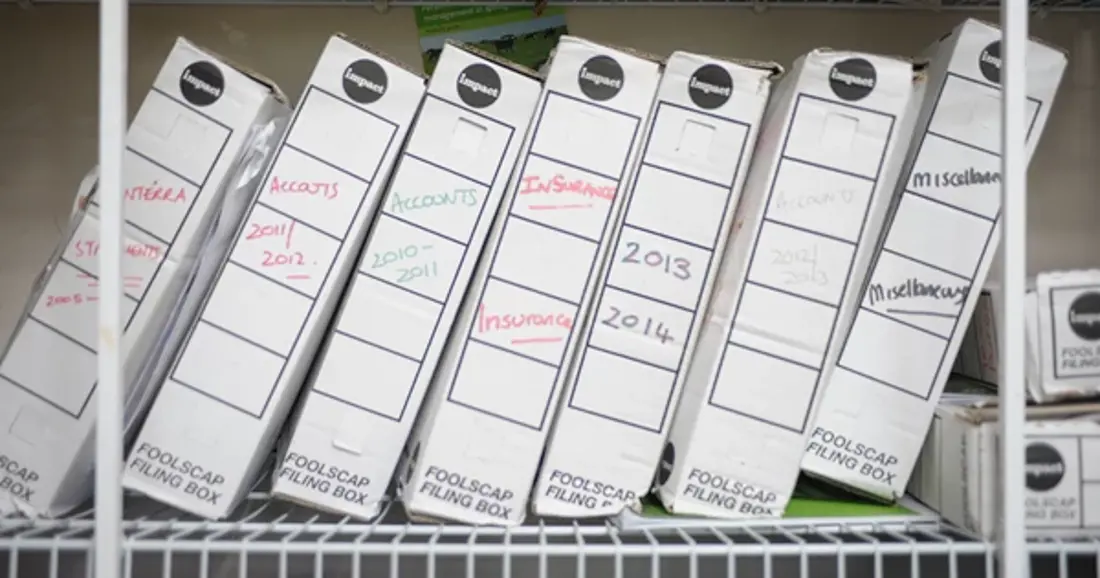Business foundations
7 min read
Running a successful dairy farm requires a well-chosen business structure and robust operating procedures. Set your structure from the start, considering its effects on tax, business longevity, and liabilities. Make operating decisions based on your farm's goals, seeking advice from professionals. Keep your budget in check and know your numbers to control business direction. Implement clear policies and procedures, explaining "how things are done around here".
Determining your business structure at the start for the short, medium and long term, means no costly charges to change it later. To own and operate a business in New Zealand, you need to choose a business structure that suits your needs and management style.
Each business structure option will affect your tax position, the life of the business, and the legal liabilities for you and others involved. Business structure examples include: Company, Trust, or Equity Partnership.
Make decisions around operating structures based on your progression goals.
Ask your Chartered Accountant, lawyer, or advisor to determine the best business structure by talking about:
Budgeting is crucial to identify if plans are achievable and profitable.
If you know your numbers, you can take control of the business direction and determine the viability of borrowing or ventures. The more you focus on the numbers, the easier it gets.
Understand and start planning your budgeting with a range of easy budgeting tools and templates to suit all business situations. Find out more in our budgeting section.
Video 2:06 min
Find out more about developing a budget and templates that can help you.
Successful businesses implement policies and procedures setting out how work is to be completed and discuss these with staff regularly, allowing people to know how things are done.
Farm policies typically cover things like:
Policies and procedures every farm must have:
Create a farm policy manual
A farm policy manual contains all farm policies and procedures. It helps ensure employees understand the way you want to run your business.
Farm policies and procedures:
Are you an employer? More about policy and procedure information for employers
A cash management system means managing all income and sales, purchases and expenses relating to your business. It's where you record all your payments and receipts by cheque, credit card, EFTPOS, cash or direct credit so you can efficiently manage your farm’s day-to-day finances, and forecast cashflow going into the next business year.
Many people keep their cashbooks electronically using an excel spreadsheet but many software packages are available. Make a start on your cashbook, find out about different cash management systems and more.
Meeting your tax obligations is a necessary part of sound financial management. Compliance means understanding the regulations your farming business will need to abide by.
Work with a Chartered Accountant or tax adviser to ensure you understand and are prepared to meet your legal obligations.
Taxation types
Different tax types will apply to your business. To meet your tax obligations, you need to understand:
How do I prepare my GST returns?
Talk to your Chartered Accountant or an IRD tax adviser to learn your options for preparing your GST returns. Accounting software is available for GST reports, and IRD have a range of guides, tools and free workshops to help you with GST and filing returns.
Kiwisaver: Kiwisaver is a compulsory part of managing your farm staff payroll.
ACC: You are legally required to provide business cover for yourself and any employees if you are self-employed, a non-payee shareholder, or an employer in New Zealand. ACC cover can only be purchased from ACC. As well as providing 24/7 no-fault personal injury cover, ACC plays an important role in the prevention of injury and supporting injured workers to recover and quickly return to work.
Insurance: Both business and personal insurance is a crucial part of setting up your farm business. Different companies or brokers can help you get the right insurance cover to minimise, and manage risks your business might face. By sorting insurance correctly from the start, you are not at a loss later - if issues arise.
Contractual agreements and obligations: You will probably have a number of legal contracts and obligations to put in place when setting up a business. These vary depending on the business structure. By understanding which contracts and associated documents you will need and what they say, you will know your legal obligations and be well prepared to meet them. Legal advice should always come through a practicing qualified lawyer or qualified rural professional.
Areas your farming business may need contracts or documents for:
Tips to help meet regulatory requirements and obligations
A productive office space and accurate record-keeping is a key part of good business and financial management.
Keep good records to:

The legal requirement for keeping accurate records for tax and employment purposes is seven years. Electronic records are acceptable.

Record keeping considerations
Office space considerations
Your office is part of your working environment. When setting up your office, consider:
Successful farmers say they could not have got where they are without the advice and assistance of others.
Technical experts, advisers from outside your farm gate, or experienced farmers can be some of the people to ask for advice.
Who do you have ‘in your corner’ supporting you to be successful?
Now’s the perfect time to check in, plan, and set up for a strong season. We’ve pulled together smart tips and tools to help you stay ahead all winter long.
Whether you prefer to read, listen, or download handy guides, we’ve got you covered with trusted tools to support your journey every step of the way.